CIHR 2011 International Review - Expert Review Teams
- Institute of Aboriginal Peoples' Health (IAPH)
- Institute of Aging (IA)
- Institute of Human Development, Child and Youth Health (IHDCYH)
- Institute of Gender and Health (IGH)
- Institute of Neurosciences, Mental Health and Addiction (INMHA)
- Institute of Nutrition, Metabolism and Diabetes (INMD)
- Institute of Infection and Immunity (III)
- Institute of Cancer Research (ICR)
- Institute of Population and Public Health (IPPH)
- Institute of Health Services and Policy Research (IHSPR)
- Institute of Circulatory and Respiratory Health (ICRH)
- Institute of Musculoskeletal Health and Arthritis (IMHA)
- Institute of Genetics (IG)
Institute of Aboriginal Peoples' Health (IAPH)
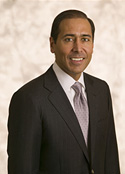 Chair - Dr. Jeff A. Henderson
Chair - Dr. Jeff A. Henderson
President and CEO
Black Hills Center for American Indian Health
South Dakota USA
Dr. Jeff Henderson is a Lakota and enrolled member of the Cheyenne River Sioux Tribe. Dr. Henderson acquired both his Bachelor's and Medical degrees from the University of California, San Diego. After completing a residency in Internal Medicine at the University of Washington, Dr. Henderson moved to Eagle Butte, South Dakota in 1992, where he served as Clinical Director of the PHS Indian Hospital there for two years. He returned to Seattle to pursue his training in Public Health, after which he moved to the Black Hills of western South Dakota and worked for two more years at the Sioux San PHS Indian Hospital. In 1998 Dr. Henderson began his transition to public health and epidemiology, joining the Strong Heart Study as a co-investigator and entering the University of Colorado Health Sciences Center's Native Investigator Career Development Program. Also in 1998, Dr. Henderson founded the Black Hills Center for American Indian Health, a community-based, non-profit organization whose mission is to enhance the wellness of American Indians through research, service, education, and philanthropy.
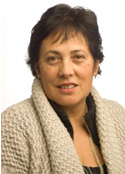 Expert Reviewer - Professor Linda Tuhiwai Smith
Expert Reviewer - Professor Linda Tuhiwai Smith
Professor of Education and Māori Development
Pro Vice Chancellor Māori, Dean School of Māori and Pacific Development
University of Waikato, New Zealand
Linda Tuhiwai Smith is a member of New Zealand's Health Research Council and Chair of the Māori Health Research Committee and is President of the New Zealand Association for Research in Education. She has worked in the field of Māori education and health for many years as an educator and researcher and is well known for her work in Kaupapa Māori research. Professor Smith has published widely in journals and books. Her book "Decolonising Methodologies Research and Indigenous Peoples" has been an international best seller in the indigenous world since its publication in 1998. Professor Smith was a founding Joint Director of New Zealand's Māori Centre of Research Excellence from 2002-2007 and a Professor of Education at the University of Auckland. She is well known internationally as a public speaker. Professor Smith is from two tribes or iwi in New Zealand, Ngāti Awa and Ngāti Porou.
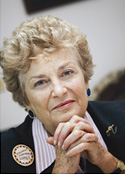 IRP Member - Professor Fiona Stanley
IRP Member - Professor Fiona Stanley
Director, Telethon Institute for Child Health Research
Chair, Australian Research Alliance for Children and Youth
Professor, School of Paediatrics and Child Health
University of Western Australia
Perth, Australia
Institute of Aging (IA)
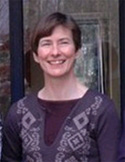 Chair - Professor Carol Brayne
Chair - Professor Carol Brayne
Professor of Public Health Medicine
Department of Public Health and Primary Care
University of Cambridge, UK
Carol is a medically qualified epidemiologist and public health academic. She graduated in medicine from the Royal Free Hospital School of Medicine, University of London and went on to train in general medicine. After gaining membership she moved on to training in epidemiology with a Training Fellowship with the Medical Research Council. The research area for this Fellowship was aging and dementia. Since the mid eighties her main research area has been longitudinal studies of older people following changes over time in cognition, dementia natural history and associated features with a public health perspective. She has been responsible for training programmes in epidemiology and public health for under and postgraduates during this time.
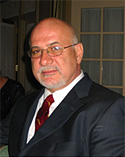 Expert Reviewer - Professor Kyriakos S. Markides
Expert Reviewer - Professor Kyriakos S. Markides
Annie and John Gnitzinger Distinguished Professor of Aging and Director, Division of Sociomedical Sciences, Department of Preventive Medicine and Community Health
Editor of Journal of Aging and Health
University of Texas Medical Branch in Galveston, USA
Professor Markides received his PhD in Sociology in 1976 from Louisiana State University. He is the author or co-author of over 290 publications most of which are on aging and health issues in the Mexican American population as well as minority aging issues in general. His research has been funded continuously by the National Institutes of Health since 1980. He is currently Principal Investigator of the Hispanic EPESE (Established Population for the Epidemiological Study of the Elderly), a longitudinal study of the health of older Mexican Americans from the five Southwestern states. Dr. Markides is credited with coining the term 'Hispanic Epidemiological Paradox' (with J. Coreil) which is currently the leading theme in Hispanic health. He is also the editor of the Encyclopedia of Health and Aging. The Institute for Scientific Information (ISA) has listed Dr. Markides among the most highly cited social scientists in the world. Dr. Markides is the 2006 recipient of the Distinguished Mentorship Award of the Gerontological Society of America, and the 2009 Distinguished Professor Award in Gerontology and Geriatrics from UCLA. In 2010 he was the inaugural recipient of the Pearmain Prize for outstanding service to the field of aging from the Roybal Institute on Aging at the University of Southern California.
 IRP Member - Professor Fiona Stanley
IRP Member - Professor Fiona Stanley
Director, Telethon Institute for Child Health Research
Chair, Australian Research Alliance for Children and Youth
Professor, School of Paediatrics and Child Health
University of Western Australia
Perth, Australia.
Institute of Human Development, Child and Youth Health (IHDCYH)
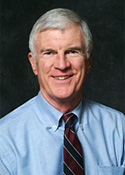 Chair – Dr. Richard B. Johnston
Chair – Dr. Richard B. Johnston
Associate Executive Vice President of Academic Affairs at National Jewish
Associate Dean for Research Development,
University of Colorado School of Medicine USA
Richard Johnston graduated from Vanderbilt Medical School and had residency training in paediatrics there. He had additional residency and fellowship training in immunology at Children's Hospital, Harvard. He was Chair of Pediatrics at National Jewish Hospital, Denver, and at the University of Pennsylvania/Children's Hospital of Philadelphia. He moved in 1992 to the March of Dimes as Medical Director while conducting research and serving as Chief of Paediatric Immunology at Yale. He is currently Professor of Paediatrics and Associate Dean for Research at the University of Colorado School of Medicine. His research interests include the cell biology of host defense, immunodeficiency disease, and child health. He is a member of the Institute of Medicine (IOM) of the National Academies of Science and has chaired seven IOM committees and served on the IOM Board of Health Promotion and Disease Prevention. He is former President of the Society for Pediatric Research, the American Pediatric Society (APS), and the International Pediatric Research Foundation; a Fellow in the American Association for the Advancement of Science; and recipient of the John Howland Medal from the APS for lifetime contributions to paediatrics and child health.
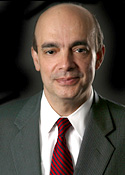 Expert Reviewer - Dr. Roberto Romero
Expert Reviewer - Dr. Roberto Romero
Chief of Perinatology Research Branch and Program Director for Obstetrics and Perinatology, Division of Intramural Research of the NICHD/NIH
Professor of Molecular Obstetrics and Genetics, Wayne State University
Detroit, Michigan USA
Dr. Romero trained in Obstetrics and Gynecology at Yale University where he later became Director of Perinatal Research. Dr. Romero's work has focused on the early diagnosis of ectopic pregnancy, the prenatal diagnosis of congenital anomalies and the study of the mechanisms of disease responsible for pregnancy complications and fetal injury, with particular emphasis on preterm labor. Dr. Romero is the author of over 700 peer-reviewed publications and several books, including a medical best seller: Prenatal Diagnosis of Congenital Anomalies. He is a member of the Institute of Medicine of the National Academies, and participates on numerous national committees such as the International Academy of Perinatal Medicine and the United Cerebral Palsy Research and Education Foundation. He also serves as Editor of the journal Ultrasound in Obstetrics and Gynecology, and is an Associate Editor of the American Journal of Obstetrics and Gynecology, Journal of Maternal-Fetal and Neonatal Medicine, and Journal of Perinatal Medicine. Dr. Romero is the recipient of countless awards, as well as six Doctorate Honoris Causa from universities around the world.
 IRP Member - Professor Fiona Stanley
IRP Member - Professor Fiona Stanley
Director, Telethon Institute for Child Health Research
Chair, Australian Research Alliance for Children and Youth
Professor, School of Paediatrics and Child Health
University of Western Australia
Perth, Australia.
Institute of Gender and Health (IGH)
 Chair - Professor Hilary Graham
Chair - Professor Hilary Graham
Professor of Health Sciences, University of York
Director - Public Health Research Consortium, UK
Professor Graham is Director of the Public Health Research Consortium, funded by England's Department of Health to improve the evidence base for policy. She also led the Health Variations Programme funded by the Economic and Social Research Council (ESRC). Her background is in sociology and social policy; with a research focus on the links between social inequalities and health. How socioeconomic disadvantage shapes women's lives and health has been of particular concern. Recent books include Unequal Lives: Health and Socioeconomic Inequalities (2007) and Understanding Health Inequalities (2009). Hilary has served on the UK's Research Assessment Exercises (1989, 1992, 1996 and 2008) as a member of the Social Work and the Social Policy Panel. She also served on the MRC's Health Services and Public Health Research Board and the UK Biobank International Scientific Advisory Board. She is currently a member of Cancer Research UK's Population Committee, NIHR's Public Health Research Board, NICE's Public Health Topic Selection Panel and the MRC Strategy Group on Addiction Research.
 Expert Reviewer - Dr. Marianne Legato
Expert Reviewer - Dr. Marianne Legato
Professor of Clinical Medicine
Columbia University College of Physicians & Surgeons
Adjunct Professor of Medicine, Johns Hopkins, USA
Dr. Marianne J. Legato is an internationally known academic physician, author, and lecturer. She is a specialist in the new science of gender-specific medicine, the science of how normal human function and the experience of the same disease vary as a function of gender/biological sex. She is the Founder and Director of the Partnership for Gender-Specific Medicine at Columbia and more recently, of the Foundation for Gender-Specific Medicine, Inc., which collaborates with scholars around the world to advance the science of the differences between men and women. Dr. Legato is the founder and editor of The Journal of Gender-Specific Medicine and founded the official scientific journal of the Partnership for Gender-Specific Medicine, Gender Medicine, in 2004. She is on the editorial board of Cardiovascular Risk Factors and Prevention Magazine. Most recently, Dr. Legato has served as a charter member of the Advisory Board of the Office of Research on Women's Health of the National Institutes of Health. She is co-chair of a task force that authored the 1999-2000 report from that Office, "An Agenda For Research On Women's Health For The 21st Century."
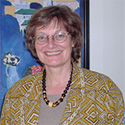 IRP Member – Dr. Marie-Francoise Chesselet
IRP Member – Dr. Marie-Francoise Chesselet
Charles H. Markham Professor of Neurology
Chair of the Department of Neurobiology
David Geffen School of Medicine
University of California Los Angeles, USA
Institute of Neurosciences, Mental Health and Addiction (INMHA)
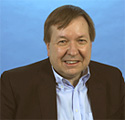 Chair - Professor T W Robbins
Chair - Professor T W Robbins
Professor of Cognitive Neuroscience
Chair of Experimental Psychology
University of Cambridge, UK
Trevor Robbins was appointed in 1997 as Professor of Cognitive Neuroscience and was elected to the Chair of Expt. Psychology (and HoD) at the University of Cambridge from October 2002. He is a Fellow of the British Psychological Society, the Academy of Medical Sciences and the Royal Society (2005). He has been President of the European Behavioural Pharmacology Society (1992-1994) and he won that Society's inaugural Distinguished Scientist Award in 2001. He was the F. Kavli Distinguished International Lecturer at the Society for Neuroscience meeting in 2005 and the Staglin Mental Health Music Festival Keynote address in 2008. He has been a member of Medical Research Council (UK) and chaired the Neuroscience and Mental Health Board until 1999. He is one of the most highly cited neuroscientists according to ISI, having published nearly 700 full papers or chapters, and co-edited five books including Neurobiology of Addiction; New Vistas (OUP, 2010). Currently, he directs the MRC/Wellcome Trust-funded 'Behavioural and Clinical Neuroscience Institute', the mission of which is to enhance translation from basic to clinical neuroscience.
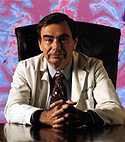 Expert Reviewer – Professor Charles P. O'Brien
Expert Reviewer – Professor Charles P. O'Brien
Kenneth Appel Professor, University of Pennsylvania
Vice Director of the Institute of Neurological Sciences
Director of the Center for Studies of Addiction
University of Pennsylvania, USA
Charles P. O'Brien, a native of New Orleans, earned MD and PhD degrees from Tulane University. He received residency training at Harvard, Tulane, University of London, and University of Pennsylvania in internal medicine, neurology and psychiatry. As Chief of Psychiatry at the Philadelphia VA Medical Center, he was responsible for over 9,000 psychiatric patients. Despite this large clinical responsibility, he was able to establish and direct a clinical research program that has had a major impact on the treatment of addictive disorders. His research group has been responsible for numerous discoveries described in over 500 publications that have elucidated basic information on the nature of addiction and improved the results of treatment for addictive disorders. His work involves discovery of CNS changes involved in relapse, new medications, behavioral treatments and instruments for measuring the severity of addictive disorders. He was elected to the Institute of Medicine of the National Academy of Sciences (1991) and has received numerous awards including an honorary doctorate from the University of Bordeaux, the Eddy award for research from the College on Problems of Drug Dependence (2003), American Psychiatric Association Research Award (2000) and the Gold Medal Research Award from the Society of Biological Psychiatry (2010).
 IRP Member – Dr. Marie-Francoise Chesselet
IRP Member – Dr. Marie-Francoise Chesselet
Charles H. Markham Professor of Neurology
Chair of the Department of Neurobiology
David Geffen School of Medicine
University of California Los Angeles, USA
Institute of Nutrition, Metabolism and Diabetes (INMD)
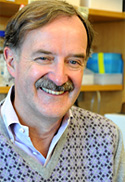 Chair - Dr. Garrett A. FitzGerald
Chair - Dr. Garrett A. FitzGerald
Chair, Department of Pharmacology
Director, Institute for Translational Medicine and Therapeutics
University of Pennsylvania, USA
Garrett A. FitzGerald, MD, is the McNeil Professor in Translational Medicine and Therapeutics at the University of Pennsylvania in Philadelphia. His work is focused on the translational therapeutics of the arachidonic acid cascade and the role of peripheral molecular clocks in metabolic and cardiovascular function. The Institute for Translational Medicine and Therapeutics (ITMAT) has grown to over 800 members and supports research programs, faculty recruitment, education and infrastructural developments relevant to translational research. Dr. FitzGerald also serves as Chair of the Department of Pharmacology at Penn. The Department is routinely now placed on the top three in NIH funding in the US and supports a Graduate Group in Pharmacological Sciences with roughly 90 students. Dr. FitzGerald serves on the Peer Review Advisory Committee of the NIH, the Science Board of the FDA and the Drug Forum of the Institute of Medicine.
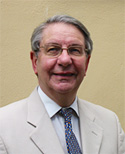 Expert Reviewer – Professor W. Philip T. James
Expert Reviewer – Professor W. Philip T. James
President, International Association for the Study of Obesity
Honorary Professor of Nutrition, London School of Hygiene and Tropical Medicine, UK
Professor James qualified in physiology (1959) and medicine (1962) at University College, London before postgraduate medical qualifications. After residencies in the UK, he spent 3 years at the UK's MRC Tropical Metabolism Unit in Jamaica, followed by a year at the Massachusetts General Hospital, Boston, USA before becoming a Senior Lecturer at the London School of Hygiene & Tropical Medicine. He ran the MRC Dunn Clinical Nutrition Centre from 1974-82 and was Director of the Rowett Research Institute from 1982-99. He chaired and wrote the first Public Health Nutrition policy reports for Scotland, and several policy reports for the UK before chairing and writing the WHO EURO (1986) and the WHO 797 reports on diet and public health for malnourished and chronic disease-prone countries. He established the International Obesity Task Force, responsible for drafting the first WHO Technical Report (2000) on the prevention and management of obesity, and persuaded first Tony Blair to create a Food Standards Agency, and then the EU a DG SANCO, followed by the EU FSA. He also chaired and wrote the UN Commission's report on global issues in nutrition. He was Vice President of the International Union of Nutritional Sciences and is now President of the International Association for the Study of Obesity.
 IRP Member - Professor Christian Bréchot
IRP Member - Professor Christian Bréchot
Vice-President – Medical and Scientific Affairs
Institut-Mérieux, France
Institute of Infection and Immunity (III)
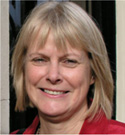 Chair - Professor Deborah Smith
Chair - Professor Deborah Smith
Professor of Molecular Parasitology
Immunology and Infection Unit, University of York
Chair, MRC Infections and Immunity Research Board, UK
Deborah Smith graduated in Biochemistry from the University of Southampton, UK. After working as a post-doctoral fellow at the National Institute for Medical Research in London and the National Cancer Institute in Washington DC, she moved to Imperial College London to develop her independent research career in the Department of Biochemistry. In December 2004, Deborah moved to the Centre for Immunology and Infection at the University of York. Research in the Centre integrates the study of basic and clinical immunology, microbiology and parasitology to develop a greater understanding of the processes underlying infection and disease, leading to new approaches for prevention and treatment. Deborah's research is focused on the human kinetoplastid parasites, particularly species of Leishmania, and aims to develop new therapeutics for the devastating diseases that they cause. Current projects include translational work in both drug and vaccine development funded by the Wellcome Trust. She has also played a leading role in the development and application of Leishmania genomics, sitting on the Pathogen Sequencing Advisory Group at the Wellcome Trust Sanger Institute. Deborah currently chairs the MRC's Infections and Immunity Research Board and is a member of the Strategy Board of the MRC.
 Expert Reviewer – Professor Hidde Ploegh
Expert Reviewer – Professor Hidde Ploegh
Professor, MIT Department of Biology
Whitehead Institute for Biomedical Research
Cambridge, MA USA
Hidde Ploegh was born in 1953 in the Netherlands. He attended the University of Groningen, where he obtained his undergraduate (majors in biology and chemistry) and master's degrees. He performed the work for his PhD in the laboratory of Jack Strominger (Harvard University) and obtained his doctorate from the University of Leiden. He joined the University of Cologne's Institute for Genetics as a junior group leader and in 1984 became a staff member at the Netherlands Cancer Institute, Amsterdam the Netherlands. In 1992 he accepted a position as Professor of Biology at MIT, Cambridge, Mass. In 1997 Dr. Ploegh became the director of the graduate program in immunology at Harvard Medical School, where he was the incumbent of the Mallinckrodt Chair in Immunopathology from 1997-2005. Dr. Ploegh returned to MIT in 2005, where he is currently a member of the Whitehead Institute for Biomedical Research and a Professor in MIT's Department of Biology. He is a member of the European Molecular Biology Organization (EMBO), a corresponding member of the Royal Dutch Academy of Sciences and a member of the American Academy of Arts and Sciences.
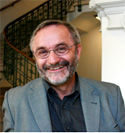 IRP Member – Professor Rudi Balling
IRP Member – Professor Rudi Balling
Director - Luxembourg Centre for Systems Biomedicine
University of Luxembourg
Institute of Cancer Research (ICR)
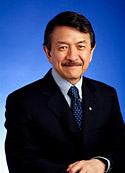 Chair - Dr. Victor Ling
Chair - Dr. Victor Ling
President and Scientific Director, Terry Fox Research Institute
Professor, Department of Pathology & Laboratory Medicine
University of British Columbia
BC Cancer Research Centre, Dept of Cancer Genetics
Dr. Ling is President and Scientific Director of the Canada-wide Terry Fox Research Institute. He is a senior scientist at the BC Cancer Agency, Professor of Pathology and Laboratory Medicine, and Director of the Interdisciplinary Oncology Program for graduate students at the University of British Columbia. Dr. Ling is best known for his discovery of P-glycoprotein associated with multiple drug resistance in cancers and for the Sister of P-glycoprotein, the bile acid transporter in liver. His lab is also involved in genomics research to identify genes important in early stage cancers. Dr Ling's work to date has been documented in over 200 publications. He has been honored by the General Motors Kettering Prize, the Dr Josef Steiner Cancer Research Award, the Gairdner Foundation International Award, a Michael Smith Foundation Distinguished Scholar Award and many others. He has received honorary degrees from four different Canadian universities, the Order of British Columbia, the Order of Canada and is a fellow of the Royal Society of Canada.
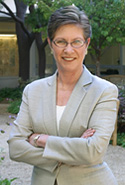 Expert Reviewer – Dr. Margaret Tempero
Expert Reviewer – Dr. Margaret Tempero
Deputy Director and Director of Research Programs at the UCSF Helen Diller Family Comprehensive Cancer Center, Department of Medicine
University of California San Francisco, USA
Dr. Margaret Tempero's research career has focused on GI cancers, especially pancreatic ductal adenocarcinoma and she is an accomplished team science leader. She has extensive experience in scientific review and administration, training and oversight. She co-directed the AACR/ASCO Methods in Clinical Cancer Research in Vail, was founding Chair of the NCI Clinical Oncology Study Section and served as a member and Chair (2 year term) of the NCI Board of Scientific Counselors Subcommittee A. She serves on numerous Cancer Center Advisory Boards and is, or has been, on the Scientific Advisory Boards of the Lustgarten Foundation, the Pancreatic Cancer Action Network, the V Foundation, The Alberta Canada Cancer Board and the European Organization for Research and Treatment of Cancer. She was a member of the American Society of Clinical Oncology (ASCO) Board of Directors as well as ASCO President in 2004. She is currently a member of the Oncology Drug Advisory Committee for the FDA. She is Chief Emeritus of the Division of Medical Oncology at UCSF (2000 – 2007).
 IRP Member – Professor Rudi Balling
IRP Member – Professor Rudi Balling
Director - Luxembourg Centre for Systems Biomedicine
University of Luxembourg
Institute of Population and Public Health (IPPH)
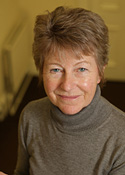 Chair - Professor Sally Macintyre
Chair - Professor Sally Macintyre
Professor, Division of Community Based Sciences, Faculty of Medicine, University of Glasgow
Honorary Director MRC/CSO Social & Public Health Sciences Unit, UK
Professor Macintyre previously held research posts in both Aberdeen University and the MRC Medical Sociology Unit in Aberdeen. She was awarded an OBE for services to Medical Sociology in 1998 and a CBE for services to Social Science in 2006, and an honorary DSc by the University of Aberdeen in 2005. A medical sociologist, recently she has researched socioeconomic and spatial inequalities in health across time and over the life course, using data from individuals, households and areas to improve understanding of the significance of the social and physical environment for health. Current interests include the potential of area-based health promotion initiatives, the role of neighbourhood barriers and facilitators for health, and developing an evidence-base for health improvement and reducing health inequalities. She is also interested in perceptions of risk, and the understandings and use of public health research by the public, policymakers, practitioners and the press.
 Expert Reviewer – Professor Don Nutbeam
Expert Reviewer – Professor Don Nutbeam
Vice-Chancellor University of Southampton
Professor of Public Health
UK
Don Nutbeam is currently Vice-Chancellor of the University of Southampton and a Professor of Public Health. His career has spanned positions in universities, government, health services and an independent research institute. From 2003-2009 he was in senior academic roles in the University of Sydney, and prior to this he was Head of Public Health in the UK Department of Health. His research interests include public health intervention research in school, community and clinical settings, as well as studies of health literacy, and adolescent health behaviour. He has published widely on these topics. He has substantial international experience in both developing and developed countries, working as an advisor and consultant for the World Health Organisation over a 20 year period, and as consultant and team leader in projects for the World Bank.
 IRP Member – Dr. Chris Murray
IRP Member – Dr. Chris Murray
Director, Institute for Health Metrics and Evaluation
Professor of Global Health, University of Washington
Seattle WA USA
Institute of Health Services and Policy Research (IHSPR)
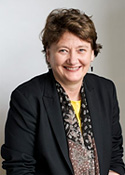 Chair - Professor Sally Redman
Chair - Professor Sally Redman
CEO Sax Institute
Sydney, NSW Australia
Professor Redman is CEO of the Sax Institute which is funded by NSW Health to increase the impact of public health and health services research on policy and practice. It is responsible for the 45 and Up Study, Australia's largest study on health and ageing, and has developed innovative approaches to increasing the use of evidence by policy agencies. The Institute also has major programs in Aboriginal health research and health services research. Professor Redman was previously the inaugural Director of the National Breast Cancer Centre, funded by Australia's federal government to improve evidence-based care & outcomes for women with breast cancer. She received the Centenary Medal for her work in breast cancer in 2003. Professor Redman's primary research interest is in the evaluation of programs designed to improve health and health care and she has over 150 publications in peer review journals. She has served on many national research committees and was a member of the Australian Government's 2004 Investment Review of Health and Medical Research.
 Expert Reviewer – Professor Sally Macintyre
Expert Reviewer – Professor Sally Macintyre
Professor, Division of Community Based Sciences, Faculty of Medicine, University of Glasgow
Honorary Director MRC/CSO Social & Public Health Sciences Unit, UK
Professor Macintyre previously held research posts in both Aberdeen University and the MRC Medical Sociology Unit in Aberdeen. She was awarded an OBE for services to Medical Sociology in 1998 and a CBE for services to Social Science in 2006, and an honorary DSc by the University of Aberdeen in 2005. A medical sociologist, recently she has researched socioeconomic and spatial inequalities in health across time and over the life course, using data from individuals, households and areas to improve understanding of the significance of the social and physical environment for health. Current interests include the potential of area-based health promotion initiatives, the role of neighbourhood barriers and facilitators for health, and developing an evidence-base for health improvement and reducing health inequalities. She is also interested in perceptions of risk, and the understandings and use of public health research by the public, policymakers, practitioners and the press.
 IRP Member – Dr. Chris Murray
IRP Member – Dr. Chris Murray
Director, Institute for Health Metrics and Evaluation
Professor of Global Health, University of Washington
Seattle WA USA
Institute of Circulatory and Respiratory Health (ICRH)
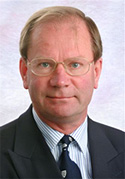 Chair - Professor Stephen Holgate
Chair - Professor Stephen Holgate
MRC Clinical Professor of Immunopharmacology
School of Medicine, University of Southampton, UK
Stephen Holgate is Medical Research Council Clinical Professor of Immunopharmacology at the School of Medicine, Southampton, UK. After completing his training in Medicine at Charing Cross Hospital in London and his postgraduate training in Respiratory and Internal Medicine, he spent 2 years at Harvard Medical School to acquire skills in allergic disease mechanisms. On his return to Southampton in 1980, he set up a research group focused on the mechanisms of asthma and allied disorders. Over the next 30 years he has utilized many approaches to study this disease including epidemiology, pathology and immunology, pharmacology, experimental medicine and genetics. His work has resulted in over 900 peer reviewed publications and 400 book chapters and reviews. He has edited 52 books including texts on Allergy, Air Pollution and Asthma. He advises the UK Government and EU on issues relating to Air Pollution and Chemical Hazards, has been a member of the Royal Commission on Environmental Pollution and is Chair of one of the MRC 4 Research Boards and member of the MRC Strategy Board.
 Second reviewer - Dr. Duncan Stewart
Second reviewer - Dr. Duncan Stewart
Dr. Duncan Stewart is a pioneering Canadian cardiovascular researcher, who is recognized for his many important discoveries in blood vessel biology as well as his dedication to translating these discoveries into benefits for patients and society. After beginning his career in academic cardiology at McGill University in Montreal, he moved to Toronto as Head of Cardiology at St. Michael's Hospital and later Director of the Division of Cardiology, and Executive Director of the McLaughlin Centre for Molecular Medicine at the University of Toronto. He was recruited to lead the Ottawa Hospital Research Institute (OHRI) in 2007. Dr. Stewart has made a number of seminal discoveries elucidating the importance of endothelial factors in health and disease, notably the role of the nitric oxide system in angiogenesis and the role of endothelin-1 in pulmonary hypertension. He is also a leader in developing cell and gene based therapies for cardiovascular disease. He led the first Canadian clinical trial to test an angiogenic gene therapy – using VEGF to try to stimulate heart repair in people who had suffered heart attacks. He is also spearheading the world's first clinical trial of a gene-enhanced cell therapy for pulmonary hypertension, using endothelial progenitor cells engineered to over-express endothelial nitric oxide synthase. He is also poised to launch the first enhanced progenitor cell therapy trial for post heart-attack repair, and he is leading a Canadian effort to initiate the world's first trial of mesenchymal stem cells for the treatment of acute lung injury and acute respiratory distress syndrome. Dr. Stewart has published more than 200 peer-reviewed manuscripts and has received a number of distinctions and prizes, including the Dexter Man Chair of Cardiology and Research Achievement Award of the University of Toronto, and the Research Achievement Award of the Canadian Cardiovascular Society. Throughout his career, Dr. Stewart has demonstrated leadership in bringing diverse groups of clinicians and scientists together to put Canada on the world stage for translational cardiovascular and regenerative medicine research.
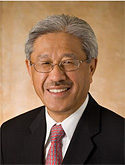 IRP Member – Professor Victor Dzau
IRP Member – Professor Victor Dzau
Chancellor for Health Affairs, Duke University
President and CEO, Duke University Health System
James B. Duke Professor of Medicine
Durham, NC USA
Institute of Musculoskeletal Health and Arthritis (IMHA)
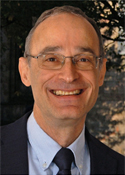
Chair - Professor Alan J Silman
Medical Director, Arthritis Research UK
Professor Alan J Silman is Arthritis Research UK's first Medical Director, a post he took up in January 2007. He has responsibility for developing not only the research strategy but also for ensuring appropriate career opportunities for those wishing to pursue an academic career. His remit also covers Arthritis Research UK's educational role from patient information to ensuring training for all health professionals. Until 2007 he was the director of Arthritis Research UK's Epidemiology Unit in Manchester and had research interests in several areas of rheumatology.
He has published over 500 original articles and a few books, and is one of the 5 joint editors of the major international reference work "Rheumatology". He continues to serve on several national and international committees.
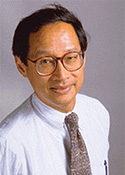 Expert Reviewer – Dr. Matthew H. Liang
Expert Reviewer – Dr. Matthew H. Liang
Professor of Medicine, Harvard Medical School
Professor of Health Policy and Management, Harvard School of Public Health
Boston MA, USA
Dr. Liang is a graduate of Johns Hopkins University (philosophy, chemistry), Harvard Medical School, and Harvard School of Public Health (tropical public health, epidemiology). He is Director of Special Projects of the Robert B. Brigham Arthritis and Musculoskeletal Diseases Clinical Research Center which he founded 25+ years ago., a founding faculty of the Primary Care Program at the Brigham and Women's Hospital and of the Clinical Effectiveness Program at the Harvard School of Public Health, and Study Director in the Veterans Administration Cooperative Studies Program. Dr Liang is recipient of the Lawrence Poole Prize in rehabilitation from the University of Edinburgh, the Lee C. Howley Sr Prize for Research in Arthritis, the American College of Rheumatology Award of Distinction for Clinical Research, the Kirkland Scholar Award, the Molson Foundation Scholar Award, the Wallace Epstein Award for Training in Clinical Research, and a Master of the American College of Rheumatology. His research includes basic methodological work in clinical trials, epidemiology of rheumatic disease and disability, identification of modifiable risk factors in high risk, disadvantaged populations, clinical decision making, and internet public health. He has authored over 300 publications.
 IRP Member – Professor Victor Dzau
IRP Member – Professor Victor Dzau
Chancellor for Health Affairs, Duke University
President and CEO, Duke University Health System
James B. Duke Professor of Medicine
Durham, NC USA
Institute of Genetics (IG)
 Chair - Professor Han G. Brunner
Chair - Professor Han G. Brunner
Professor of Medical Genetics
Head - Department of Human Genetics, Radboud
University Nijmegen Medical Centre, The Netherlands
H.G. Brunner studied medicine at the University of Groningen 1975-1984. He then trained as a clinical geneticist in the department of Human Genetics Nijmegen University Hospital, the Netherlands. After his PhD thesis in 1993 (title: Genetic Studies in Myotonic Dystrophy) he initiated and conducted several research projects that use clinical genetic observations as the starting point for human molecular genetic investigations into such topics as human behaviour, skeletal development, brain development, neuromuscular disease, congenital malformations, and gonadal development and function. In 1998 he was appointed full professor and head of the department of Human Genetics at Nijmegen University Hospital. From 2004-2008 he was in addition appointed chancellor for Human Genetics, Pediatrics, and Medical Psychology at Nijmegen University Hospital. Han Brunner is current chairman of the Scientific Program Committee of the European Society of Human Genetics, and a member of the scientific council of the Dutch Organisation for Research of Neuromuscular Diseases. He is the chairman of the Dutch National Organisation for Scientific research (ZON-MW) committee for VICI career development grants.
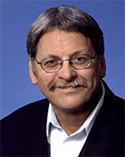 Expert Reviewer – Professor Jim R. Lupski
Expert Reviewer – Professor Jim R. Lupski
The Cullen Endowed Chair in Molecular Genetics
Professor, Department of Molecular and Human Genetics and Department of Pediatrics
Baylor College of Medicine, Houston TX USA
After completing an MD/PhD at New York University, Jim Lupski moved to Houston, Texas in 1986 for clinical training in paediatrics and medical genetics. He then established his own laboratory at Baylor College of Medicine where he remains, and as of 1995, as the Cullen Professor of Molecular and Human Genetics. The Lupski laboratory has developed the concept of genomic disorders, diseases due to rearrangements of the human genome rather than DNA sequence base changes, and established the critical role of gene dosage in conveying human disease phenotypes. An increasing number of diseases are recognized to result from Copy Number Variation (CNV) involving unstable genomic regions; recent examples include both autism and schizophrenia. The laboratory focuses on the delineation of specific genomic disorders, elucidating the mechanisms for human genomic rearrangements resulting in CNV, and clinical implementation of high resolution human genome analysis to link structural variants with clinical phenotypes. Professor Lupski has co-authored over 450 scientific publications, is an inventor on more than 20 patents and has delivered over 325 invited lectures in 26 countries.
 IRP Member – Professor Rudi Balling
IRP Member – Professor Rudi Balling
Director - Luxembourg Centre for Systems Biomedicine
University of Luxembourg
- Date modified: